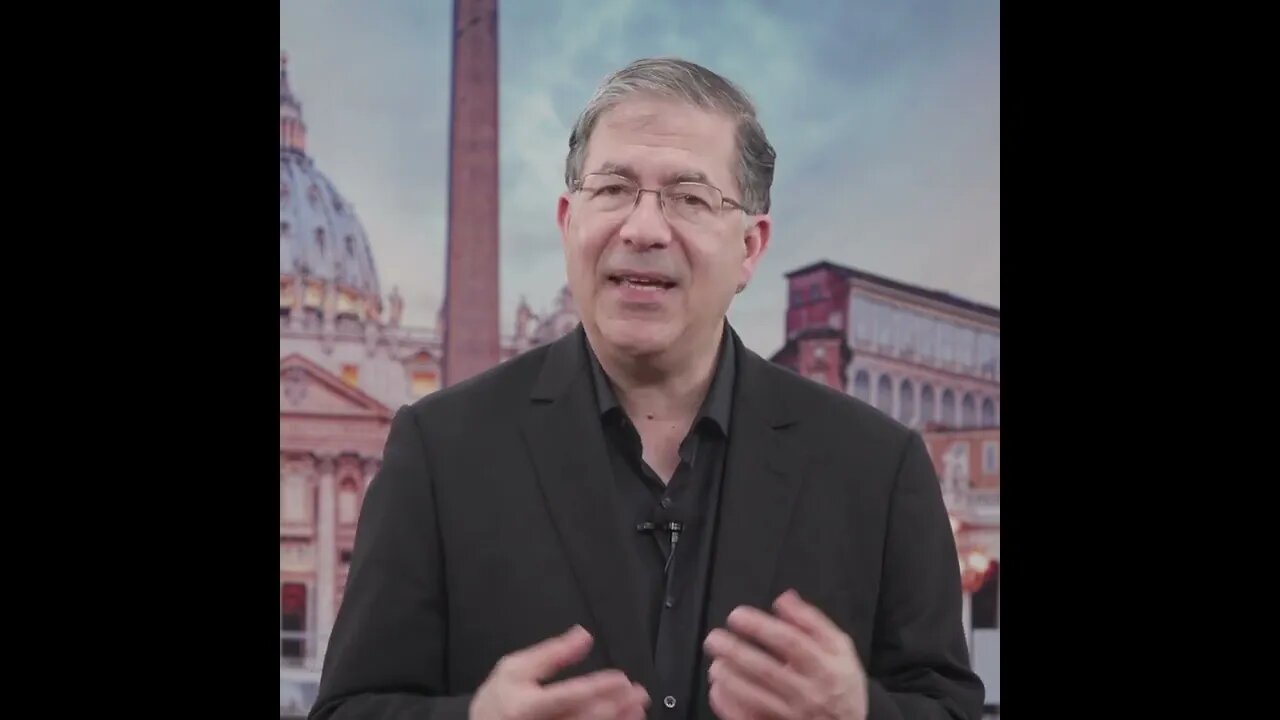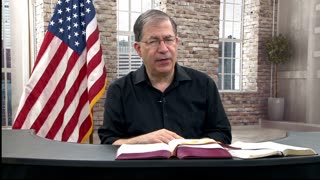Premium Only Content

Preaching on abortion, 4th Sunday Easter, Year A, Pro-Life Leader Frank Pavone of Priests for Life
Pro-Life Leader Frank Pavone, National Director of Priests for Life, reflects on the Sunday readings for the 4th Sunday of Easter, Year A and their message about abortion.
For more information about what the Sunday readings, and the whole Bible, say about abortion, and for resources for your Church, see https://www.ProLifePreaching.org. You can order there the book “Proclaiming the Message of Life,” which contains these reflections for all the Sunday readings in the lectionary.
Acts 2:14a, 36-41
1 Pt 2:20b-25
Jn 10:1-10
Jesus is revealed as the Good Shepherd, who fulfills Psalm 23 in all its promises, precisely through the Paschal Mystery. The Shepherd leads the sheep to life, and this is how Christ defines his ministry. “I came so that they may have life, and have it more abundantly.”
In order to have it more abundantly, that is, unto the resurrection of the dead and having a seat on God’s throne, we must first “have it.” Natural life is the necessary precondition for supernatural life, and therefore the defense of natural life is necessarily an aspect of the proclamation of the gift of supernatural life and the mission of the Church to lead people to it.
In a culture of death, the preaching of Peter about repentance, found in today’s first reading, has a particular significance in rejecting abortion and euthanasia, individually and collectively, as well as the mindset behind them. These evils are not simply the destruction of life but the direct, legally-enshrined denial of its inherent worth.
The promotion and nurturing of vocations in our day finds a fruitful source in the movement to defend the right to life, and should be explicitly linked to the need for those who proclaim that message.
The beginning of the encyclical “The Gospel of Life” refers to today’s gospel passage and provides the following perspective, which can inform our preaching today:
“When he presents the heart of his redemptive mission, Jesus says: "I came that they may have life, and have it abundantly" (Jn 10:10). In truth, he is referring to that "new" and "eternal" life which consists in communion with the Father, to which every person is freely called in the Son by the power of the Sanctifying Spirit. …
“Man is called to a fullness of life which far exceeds the dimensions of his earthly existence, because it consists in sharing the very life of God. The loftiness of this supernatural vocation reveals the greatness and the inestimable value of human life even in its temporal phase. Life in time, in fact, is the fundamental condition, the initial stage and an integral part of the entire unified process of human existence. It is a process which, unexpectedly and undeservedly, is enlightened by the promise and renewed by the gift of divine life, which will reach its full realization in eternity (cf. 1 Jn 3:1-2). At the same time, it is precisely this supernatural calling which highlights the relative character of each individual's earthly life. After all, life on earth is not an "ultimate" but a "penultimate" reality; even so, it remains a sacred reality entrusted to us, to be preserved with a sense of responsibility and brought to perfection in love and in the gift of ourselves to God and to our brothers and sisters.
“The Church knows that this Gospel of life, which she has received from her Lord, has a profound and persuasive echo in the heart of every person—believer and non-believer alike—because it marvellously fulfils all the heart's expectations while infinitely surpassing them. Even in the midst of difficulties and uncertainties, every person sincerely open to truth and goodness can, by the light of reason and the hidden action of grace, come to recognize in the natural law written in the heart (cf. Rom 2:14-15) the sacred value of human life from its very beginning until its end, and can affirm the right of every human being to have this primary good respected to the highest degree. Upon the recognition of this right, every human community and the political community itself are founded.
“In a special way, believers in Christ must defend and promote this right, aware as they are of the wonderful truth recalled by the Second Vatican Council: "By his incarnation the Son of God has united himself in some fashion with every human being". This saving event reveals to humanity not only the boundless love of God who "so loved the world that he gave his only Son" (Jn 3:16), but also the incomparable value of every human person.
“The Church, faithfully contemplating the mystery of the Redemption, acknowledges this value with ever new wonder. She feels called to proclaim to the people of all times this "Gospel", the source of invincible hope and true joy for every period of history. The Gospel of God's love for man, the Gospel of the dignity of the person and the Gospel of life are a single and indivisible Gospel.
“For this reason, man—living man—represents the primary and fundamental way for the Church” (EV 1-2).
-
 19:21
19:21
Fr. Frank Pavone
2 months agoOur Daily Scripture Reading and Reflection: Eat the Scroll
268 -
 1:21:55
1:21:55
Kim Iversen
13 hours agoMultiple States To BAN mRNA Vaccines | They Want to Make Protesting Illegal, Here's How
76.9K111 -
 7:34:25
7:34:25
Dr Disrespect
20 hours ago🔴LIVE - DR DISRESPECT - WARZONE - IMPOSSIBLE TRIPLE THREAT CHALLENGE
213K32 -
 1:02:45
1:02:45
Tundra Tactical
10 hours ago $27.10 earned🛑 KASH PATEL NEW ATF DIRECTOR??? Breaking News!!!! 🛑
80.7K11 -
 4:31:10
4:31:10
I_Came_With_Fire_Podcast
20 hours agoMy EURO Divorce | HOGG with a side of PAC | Foreign FUNDS Fudged
47.3K5 -
 37:44
37:44
Glenn Greenwald
17 hours agoGlenn On Tearing Down the Military Industrial Complex, Exposing Pro-Israel Indoctrination, and More | SYSTEM UPDATE #411
125K135 -
 4:04:20
4:04:20
Nerdrotic
16 hours ago $54.01 earnedAmazon Takes 007! Hollywood is Lost, Disney Cancels WHO? | Friday Night Tights 342 /w ItsAGundam
185K53 -
 43:27
43:27
Tucker Carlson
15 hours agoRay Dalio: America’s Hidden Civil War, and the Race to Beat China in Tech, Economics, and Academia
180K195 -
 56:56
56:56
Candace Show Podcast
16 hours agoEXCLUSIVE: Taylor Swift Will Be Deposed. | Candace Ep 150
228K165 -
 1:03:52
1:03:52
IsaacButterfield
13 hours ago $9.17 earnedRepublican Vs 25 Transgender Activists | Jewish Outrage | Lizzo Loses All the Weight
76.1K16